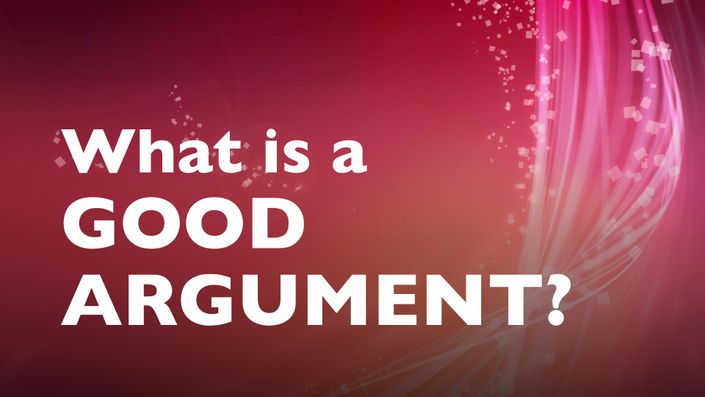
What is a Good Argument?
Learn the fundamental concepts for identifying and evaluating good and bad arguments.
Watch Promo
NOTE: This is a FREE course, courtesy of the Critical Thinker Academy's monthly supporters. It's included in the site-wide bundle which unlocks every course in the Academy.
This is where every course in critical thinking begins, with a discussion of the most basic and foundational concepts necessary for argument analysis. What is an argument? What is a premise? What is a conclusion? What is a good argument? What is a bad argument?
This course also introduces the single most important distinction in argument analysis, the distinction between the truth or falsity of the premises of an argument, and the logical relationship between the premises and the conclusion.
The last section discusses two important types of argument, “deductive” and “inductive”, and how they relate to scientific reasoning.
What Will I Learn in This Course?
In this course you'll learn:
- what an argument is and what is required to have an argument
- the distinction between good arguments and bad arguments
- the distinction between evaluating the logic of an argument and evaluating the truth or falsity of the premises
- the distinction between true premises and plausible premises
- the distinction between valid, strong and weak arguments
- the difference between deductive and inductive arguments
What Do I Get With This Course?
When you enroll in this course you get
- 12 video lectures, totaling 58 minutes of viewing time
- Full transcripts for each of the lectures, embedded below the videos
- Discussion comments for each of the lectures, allowing you to ask and respond to questions and comments
- Quiz questions that allow you to review and test your understanding of the concepts
- A pdf ebook suitable for printing or viewing on a desktop computer or tablet device
This course will give you the basic vocabulary for talking about good versus bad arguments. From here you can go on to study more focused topics in argument analysis, such as formal and informal fallacies.
Content
-
Preview1. What is an Argument? (4:17)
-
StartQuiz: What is an Argument?
-
Preview2. What is a Claim? (4:25)
-
StartQuiz: What is a Claim?
-
Preview3. What is a Good Argument (I)? (3:58)
-
StartQuiz: What is a Good Argument (I)?
-
Preview4. Identifying Premises and Conclusions (5:34)
-
StartQuiz: Identifying Premises and Conclusions
-
StartDiscuss the Quiz Questions in This Section
-
Preview1. The Truth Condition (6:29)
-
StartQuiz: The Truth Condition
-
Preview2. The Logic Condition (5:49)
-
StartQuiz: The Logic Condition
-
Preview3. Valid versus Invalid Arguments (5:29)
-
StartQuiz: Valid vs Invalid Arguments
-
Preview4. Strong versus Weak Arguments (6:38)
-
PreviewQuiz: Strong vs Weak Arguments
-
Preview5. What is a Good Argument (II)? (1:57)
-
StartQuiz: What is a Good Argument (II)?
-
StartDiscuss the Quiz Questions in This Section
